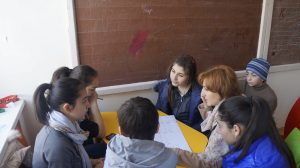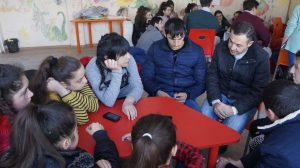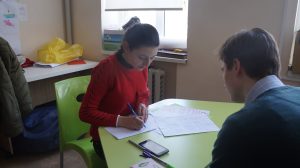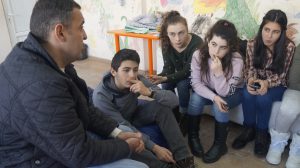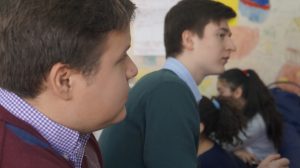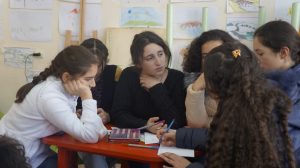The project aimed to build capacity for members of the non-governmental organization – Ukrainian Youth Climate Association (UYCA). Established in 2014, the organization promotes green initiatives in Ukraine and beyond. Within the framework of the fellowship, Iryna organized training and two board meetings for ten core members. During the meetings, the board evaluated the project achievements in the previous year and approved the new strategic plan. The managers also reviewed the list of potential partners and projects to ensure compliance with the global climate movement agenda. To improve professional qualification in the field, Iryna completed a 1-month internship at the climate department of DRA Berlin (Deutsch-Russischer Austausch, ENG: German-Russian Exchange), which is a partner organization supporting the development of civil society in Eastern Europe.
The project built the capacity of the organization’s core members in management, facilitation, negotiation, strategic planning, and team-building via the managerial meetings. As an outcome of the above events, the organization developed three project proposals, out of which one was approved and financed by the donor. Also, the organization developed a new strategy and action plan for the forthcoming years. Distance work and collaboration with the non-governmental organization Cooperation and Development Network (CDN) facilitated the regional partnership between those two CSOs. On top of that, a 1-month internship at the climate department of the DRA Berlin (Deutsch-Russischer Austausch, ENG: German-Russian Exchange) increased awareness of Iryna in the field of international civil society organizations work in regard to climate change and sustainability.


